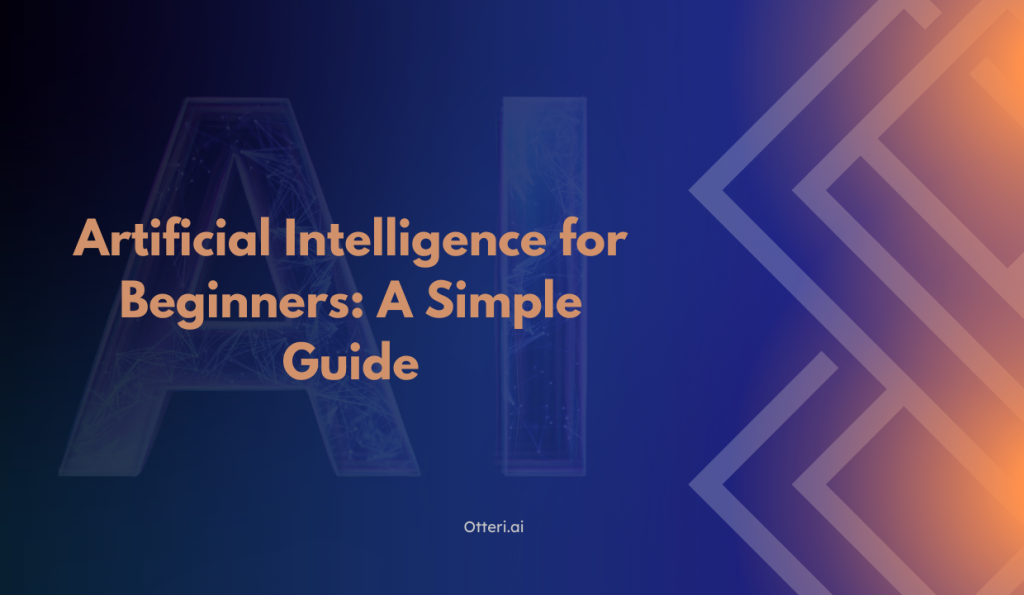
Artificial Intelligence (AI) is changing the way we live and work. From smart assistants like Siri and Alexa to self-driving cars and advanced medical tools, AI is shaping industries and making everyday tasks easier. But what exactly is AI, and why is it so important?
If you’re new to AI, this guide will explain the basics in a clear and practical way, without unnecessary technical jargon.
What is Artificial Intelligence?
AI refers to computer systems that can perform tasks that typically require human intelligence. This includes learning from experience, recognizing patterns, making decisions, and even understanding language.
There are different levels of AI. The most common type, known as narrow AI, is designed for specific tasks like recommending movies on Netflix or recognizing faces in photos. General AI, which would function like a human brain, is still in development. Some experts speculate about the possibility of super AI, where machines surpass human intelligence, but this remains a theoretical concept.
How AI Works
AI works by processing large amounts of data, identifying patterns, and making predictions based on those patterns. The key technologies behind AI include machine learning, deep learning, natural language processing, and computer vision.
Machine learning allows AI to improve over time by analyzing data. Deep learning, a more advanced form of machine learning, enables AI to recognize images, speech, and complex patterns. Natural language processing helps AI understand and generate human language, making chatbots and voice assistants possible. Computer vision allows AI to “see” and interpret images and videos, which is useful in facial recognition, security systems, and medical imaging.
Where AI is Used
AI is already a part of daily life in ways that many people don’t even notice. Smart assistants like Alexa and Google Assistant respond to voice commands. E-commerce platforms recommend products based on browsing history. AI-powered tools help doctors diagnose diseases and suggest treatment plans.
In the finance sector, AI detects fraudulent transactions and helps predict market trends. Self-driving cars use AI to navigate roads safely. In entertainment, streaming services use AI to suggest TV shows and movies. AI is even being used in agriculture to monitor crop health and improve farming techniques.
The Impact of AI on Jobs
There is a lot of discussion about whether AI will replace human jobs. While AI can automate repetitive tasks, it still lacks creativity, emotional intelligence, and critical thinking. Instead of completely replacing jobs, AI is more likely to change the way people work.
Many industries will require workers who can collaborate with AI and use it to improve efficiency. This means new opportunities in fields like AI development, data analysis, and AI ethics. The key to staying relevant in the job market is learning how to work alongside AI rather than compete with it.
Getting Started with AI
Learning about AI doesn’t have to be complicated. Understanding the basics through books and articles is a good start. There are many online courses available that teach AI concepts in a simple way. Exploring AI-powered applications, such as chatbots and AI writing tools, can also help build familiarity with the technology.
For those interested in programming, learning Python is a great way to start working with AI. Staying updated on AI trends through blogs, podcasts, and tech news can also provide valuable insights.
The Future of AI
AI is evolving quickly, and its future is full of possibilities. It is expected to drive innovation in healthcare, education, finance, and automation. Smart cities, personalized medicine, and AI-powered creativity are just some of the areas where AI could have a major impact.
At the same time, ethical considerations like data privacy, bias in AI systems, and the responsible use of AI will become increasingly important. Governments and organizations will need to establish regulations to ensure AI is used for the benefit of society.
AI is not just for scientists and engineers—it’s becoming a part of everyday life. Understanding it now will help individuals and businesses stay ahead in the changing world.
For AI-powered automation and business solutions, explore Otteri.ai and see how AI can improve efficiency and productivity.